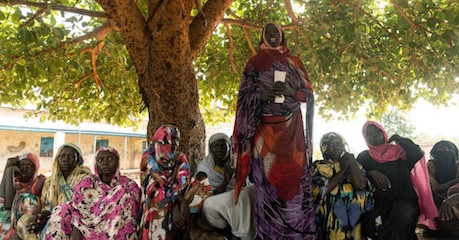An internationally condemned human rights violation, female genital mutilation (FGM) harms girls’ bodies and their futures. More than 200 million girls and women are living with the pain and trauma of this inhumane practice, a form of ritualized gender-based violence still practiced worldwide. Most are harmed before their 15th birthday.
FGM is defined as the partial or total removal of the external female genitalia, or other injury to female genitals for nonmedical reasons. It is an excruciatingly painful procedure that involves life-threatening health risks and long-term physical and psychological complications.
5 facts about female genital mutilation (FGM)
Rooted in gender inequality and power imbalances, FGM has been performed on girls and women in at least 31 countries across three continents; more than half of those who have been subjected live in Egypt, Ethiopia and Indonesia. Diaspora communities sometimes bring the custom with them when they migrate.
An alarming trend is the growing medicalization of the practice. Around one in four girls and women who have been harmed — 52 million — were subjected to FGM by health professionals. The proportion is twice as high among adolescents.
UNICEF-trained social workers stand up for vulnerable girls who are in danger of being subjected to FGM. UNICEF also provides medical care for girls who have been harmed and traumatized by FGM.
UNICEF and the United Nations Population Fund are working to end FGM
UNICEF and the United Nations Population Fund (UNFPA) are working together to put a stop to FGM once and for all. Progress has been made: girls today are one-third less likely to be subjected to FGM compared to three decades ago. However, progress must be at least 10 times faster in order to meet the global target of eliminating FGM by 2030.
Changing the conversation
UNICEF and UNFPA’s joint program engages families, communities, institutions and policy makers to act as agents of social change to promote the elimination of FGM.
At UNICEF-supported community awareness sessions, women share their experiences and agree to stand up against cultural pressure to subject their daughters to the practice. Youth advocates like 15-year-old Fatima in Sudan, whose family condemns FGM, share the dangers with their classmates and members of their community. “I believe FGM should stop. Girls in my school that have been subjected to FGM have very painful periods. It is bad,” said Fatima. “FGM will destroy your life. Don’t accept it.”
Men and boys play an important role in awareness raising too, enabling safe environments for girls and women, and — most importantly — detecting, reporting and preventing FGM cases. Efforts to change the narrative are making an impact: significant opposition to FGM among boys and men is evident in countries such as Eritrea, Ethiopia, Guinea and Sudan.
It’s time to break the cycle of violence and end female genital mutilation. Please donate today.
Top photo: On Oct. 12, 2022, in the village of Saraf Aldi, South Kordofan State, Sudan, women attend a UNICEF-supported community awareness session about female genital mutilation. “I gave birth to my daughter, and I have told my husband that our child will not be mutilated, despite the cultural beliefs,” one mother says. “Now that I know the dangers, I will protect her.” © UNICEF/UNI396251/Zehbrauskas. Video edited by Tong Su for UNICEF USA.
